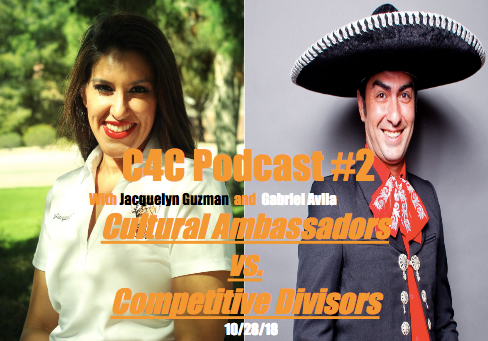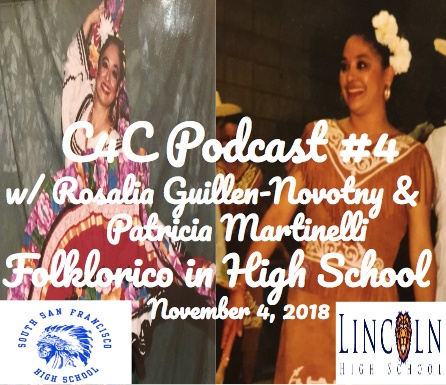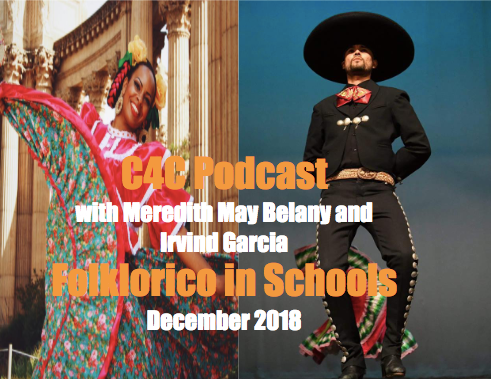Podcast #2: Cultural Ambassadors vs. Competitive Divisors
- Christopher Sandoval

- Oct 4, 2018
- 2 min read
Updated: Oct 28, 2018
Founder and Artistic Director of Pasion De Mi Tierra, Gabriel Avila and Founder and Artistic Director of Ballet Folklorico Sol de Rancho High School, Jacquelyn Guzman will be engaging in a coffee table discussion with C4C director Christopher Sandoval regarding the passive actions of competitive egos in folklorico perpetuating active spaces for rivalry and false pride in serving the cultural art of Mexican folk dance aka folklorico.

Preface
Whether you are a student, teacher, or organizer; we all are in this work because we treasure our heritage, breathe our culture, and love to dance. Embodying this places ourselves in a position to become cultural ambassadors of this work. It is also commonly understood that by human nature we are competitive beings, and competition within a dance organization, between dance organizations, or between regions can bring negative consequences such as forgetting original reasons or obligation to serving the art form. The line between these two ideas can be very blurry, and even imbalanced to push the regression of community building within folkloristas, rather than push it forward. Founders and artistic directors of their respective Mexican folk dance organizations, Jacquelyn Guzman and Gabriel Avila, engage in conversation regarding this blurry line with C4C director Christopher Sandoval experiencing it within their own "folklorico" narratives, and finding similarities and differences across their own.
Conversation Highlights from Podcast
Healthy competition versus unhealthy competition
Accountability of space makers that bring folkloristas together
How can we move forward in producing cultural ambassadors over competition divisors in groups, folklorico events, etc.
*As this topic may strike a personal chord with active participants in the "folklorico" realm, it is prefaced that we acknowledge that space makers have a full time and difficult responsibility to balance a space across principles of discipline, history, and community awareness. We are not here to shame others, but rather to provide reflections of our own experiences to improve the socio-cultural fabric and space that embodies us as "folkloristas".





Comments